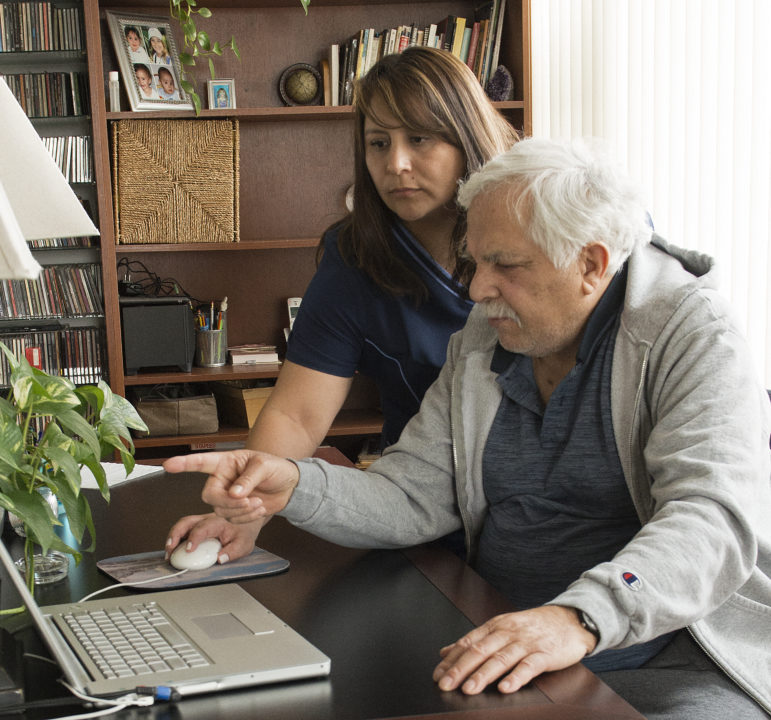
Sunnyside Community Services
Hebert is able to remain at home with his family, thanks to assistance from Victoria, his home health aide. They were connected by Sunnyside Community Services' Care NYC program.
If you worked an hourly-wage job for 24 hours straight, you’d expect to be paid for all 24 hours. But for New York’s residential home-care workers, long-standing New York State Department of Labor (DOL) regulations dictate that most workers get paid for just 13 of those 24 hours. This rule leaves home-care workers, most of whom are women of color, systematically underpaid.
Given this injustice, it made sense that workers sought legal action to abolish the 13-hour rule. But with last month’s State Court of Appeals decision preserving the status quo, the industry is back to square one, with state regulations pitting employees who want fair wages against employers whose hands are tied by Medicaid reimbursement rates set by the state.
With the cases settled, employers are breathing a small sigh of relief – had the court ruled in favor of the employees, they could have been responsible for upwards of $1 billion per year in wages. However, for nonprofit providers like settlement houses who serve vulnerable community members and seek to promote social justice, a decision that perpetuates near-poverty wages is not one to celebrate. The Chinese-American Planning Council, St. Nick’s Alliance, and Sunnyside Community Services, for example, collectively employ nearly 7,500 home-care workers and help over 4,500 patients in their neighborhoods. The lawsuits could have forced them to close their doors entirely, shutting down home care services and the numerous wrap-around, multigenerational services they provide. Still, they advocated for the state to support fair worker pay.
State regulations force workers to accept dire wages, and it’s time for the state to take responsibility for covering these costs and rectifying a system it has neglected for decades. Solving the home-care crisis will require financial investment, but that investment will support tens of thousands of jobs and help ensure caregivers are available as New York’s senior population continues to grow. The problem won’t go away by itself: by 2025, New York State will see a 33 percent increase in need for home-health aides and face a shortage of 23,000 home-care workers.
As a first step, the state must fund 24-hour pay through Medicaid reimbursement rates. Not only would this help stabilize the home care industry, but it would also ensure that home care workers are paid fairly. The state should also consider expanding the use of multiple 12-hour shifts, which would improve conditions for workers but might not be appropriate for patients who benefit from a consistent aide.
Stabilizing the home-care industry will require creative reforms and long-term oversight. To ensure that the industry’s challenges are finally tackled, the state should establish a task force with a range of stakeholders to recommend industry reforms, ensure that patients receive high quality, dignified care, and explore establishing a permanent office for industrywide oversight.
It’s easy to think of any pay disparity issue as the employer versus the employee, but that misconception is exactly what allows New York to get away with the current system. The state should not continue to pit nonprofit home-care providers and their employees against one another. Without state intervention, the existing home-care workforce shortage will accelerate, and thousands of elderly and disabled clients will be left without care or forced into institutional settings. The state must stand with both workers and providers to ensure that they can continue to work together to provide quality care to the most vulnerable New Yorkers.
Tara Klein is a policy analyst at United Neighborhood Houses.








